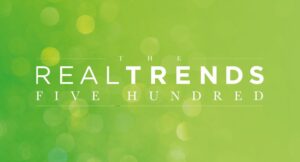Jeff Bezos, the CEO of Amazon, famously said, “Your brand is what people say about you after you leave the room.” In today’s digital age, what people used to say “in the room” often now occurs online. From online reviews to social media, you must be aware of your digital image. In addition, you have the opportunity to impact what other people say about you, based on what you build.
If you’re new to social media, or looking to ramp up your activity, there are simple steps you can take to create a successful presence online, starting with planning your brand and voice, and with knowing the tools to help you maintain an active presence. Below, we have four business personality types, and how you can use social conversations to enhance that perception (and our favorite tool to help make this process seamless and quick for you):
Dominant
A dominant personality type is hard-working and objective-focused, often referred to as “type A”—think Fredrik Eklund from Million Dollar Listing. If you are this type, you want to showcase your success and build the sense that people who work with you are part of an exclusive club: Celebrate your closed deals and what you’ve done for your clients; actively solicit and promote reviews from happy clients, and promote moments when you get access to inside information.
This approach may not be for everyone, but if you are a dominant personality, flaunt it.
Expressive
The expressive businessperson is one who is generally optimistic in their approach to business. They are also high-energy, always on the go and are always willing to accept challenges. If you are this type, you should post about your personal adventures. Do you hike or bike, or did you eat black squid at a new restaurant? If so, post about it. You should also celebrate your client experiences, but more from the perspective of the challenges that were solved. If you ever had a client who needed a special type of mortgage, post about that unique challenge and the solution.
Introvert
The introvert is the opposite of an expressive personality, and while the name may not seem relevant to real estate, many successful real estate professionals are introverts. This person is analytical and driven by facts rather than emotion to make informed business decisions. An introvert prefers to be the voice of reason and to not make mistakes. To showcase your positive qualities on social media, you want to be a hub of knowledge. Be sure to share articles like buyer-seller tips and trends in the local market. In addition, you will want to connect and interact with other professionals who can help step in to answer questions and solve problems.
Relational
These people are the ones who work best in group situations and are driven by their networks. They can be easygoing and sometimes exhibit a “go with the flow” mentality that helps them avoid conflict. If you are relational, social media is your platform. You should be posting about community events, as well as commenting and retweeting other relevant people’s content. You should be a promoter, but instead of promoting yourself, focus more on promoting and engaging with others.
Take heart: No matter your personality type – we all have one thing in common – we want to provide valuable content for our followers! There are multiple social media content curation tools to help you easily pick and place articles, posts and interest pieces that fit your brand and style. Our favorite, Lumentus Social, is pre-set with topics and current-event curating software to show you the best, personalized, conversations that exist for you to easily share—and it goes a step further by helping you schedule these posts in any (or all) social media channel quickly right then and there!
Remember, it is always easier to build your brand and stay consistent with social media if you have a strategy. Authenticity is your greatest asset on social media. Think about your personality type and take time to cultivate an image accordingly. Let your personality shine and the right type of client will come to you.
Note: The 4 personality types are referenced from an article from Jared Lewis of Demand Media.








